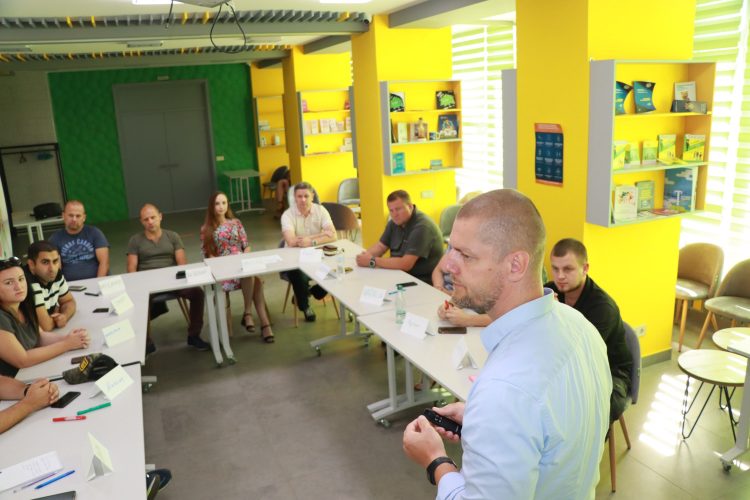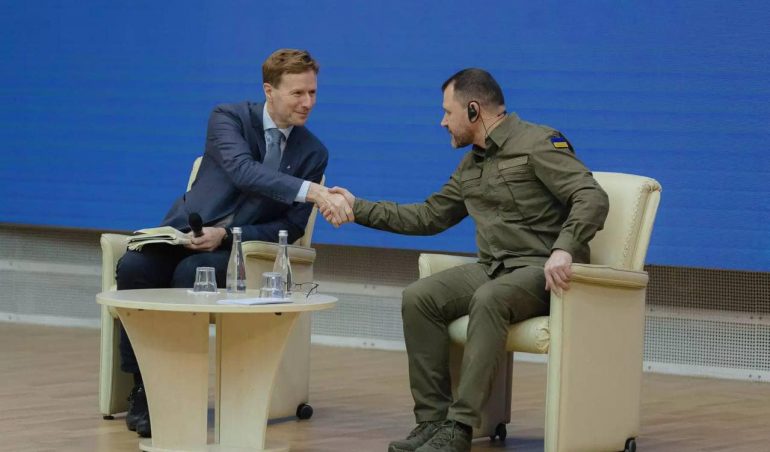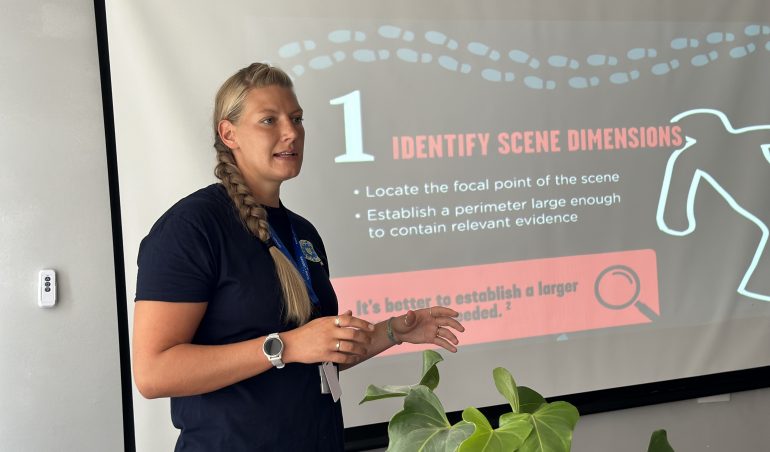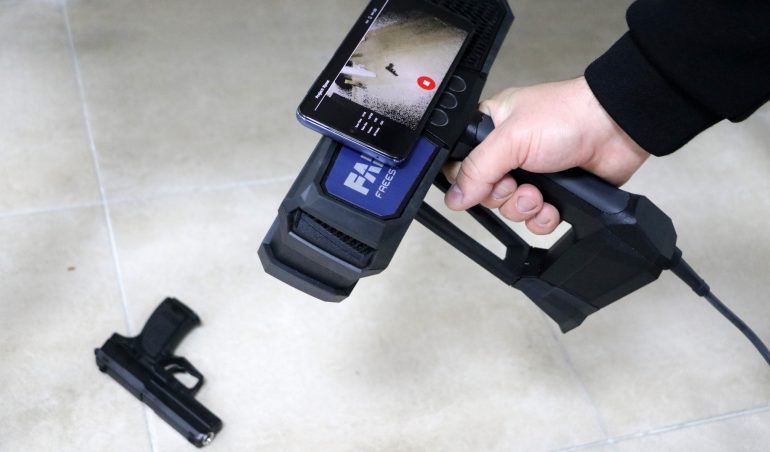Police in Donetsk region undergoes practical training on crime scene management
August 06, 2021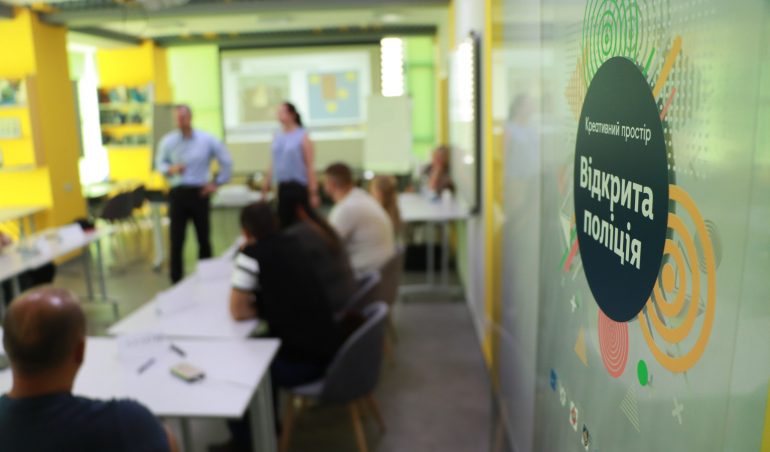
This week, the EU Advisory Mission (EUAM) team of criminal investigation experts delivered practical training in Mariupol. Representatives of investigation, operative, and patrol police units in the Donetsk region learned more about best European practices in crime scene management and crime scene protection, investigative interviewing using the PEACE model and searching for the relevant information in the open sources. Officers underwent different practical scenarios where they could practice their new skills.
The PEACE Model of investigative interviewing was developed in the early 1990s as a collaborative effort between law enforcement and psychologists in England and Wales. This model takes a conversational, non-confrontational approach to getting information from an investigation interview subject. It was designed to reduce the number of false confessions recorded due to overly aggressive interviewing tactics.
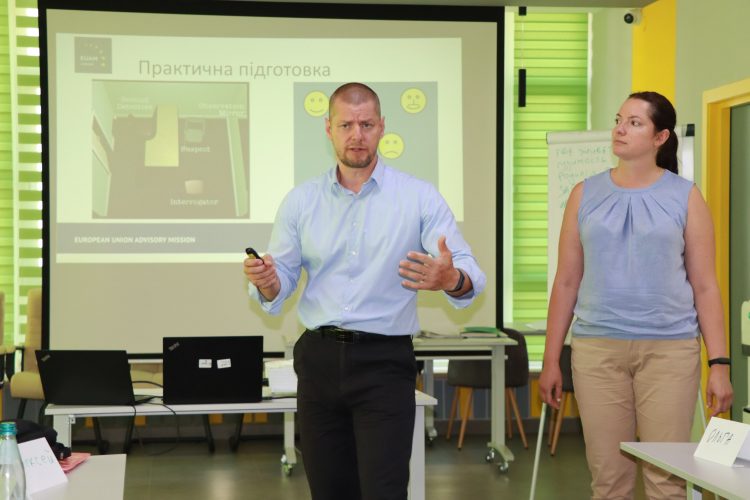
The PEACE model is an investigative interviewing method that comprises five basic steps using the PEACE letters to prompt the different phase names of the interview life cycle. The first “P” phase represents ‘preparation and planning’ that includes reviewing the case and preparing an interview plan. The second ‘E’ phase means ‘engage and explain’ that aims to set out the reasons or objectives for the interview. An introduction appropriate to the circumstances of the interview. A proper relationship should be formed between the interviewer and interviewee.
The third “A” phase represents ‘account clarification and challenge’ where the interviewing start the focus on the matter. It begins with an opening statement of the case detail and takes and develops an account of events. The fourth “C” phase represents the ‘closure’ of the interview and ensures you have any statement, document or recording secured.
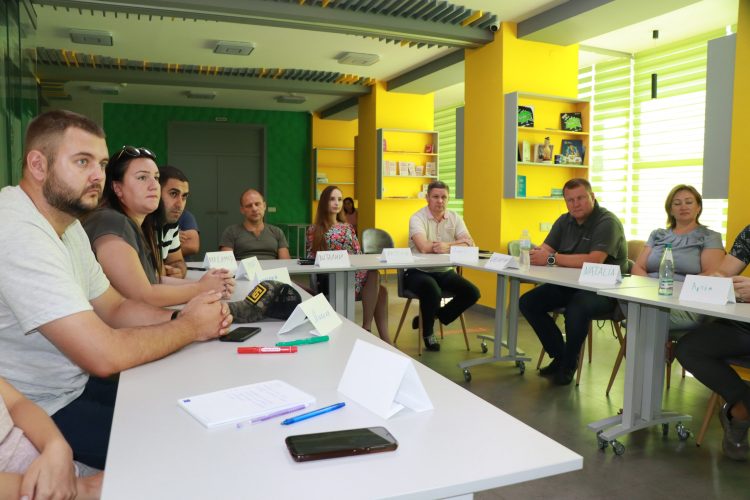
Depending on the type of investigation, an interviewee statement may need to be signed to give the statement legal strength. The fifth and final “E” phase represents the ‘evaluation’ of the interview’s process and outcomes. The first consideration is whether the objectives of the interview were achieved. Decisions must then be made about whether any further interview is required.
